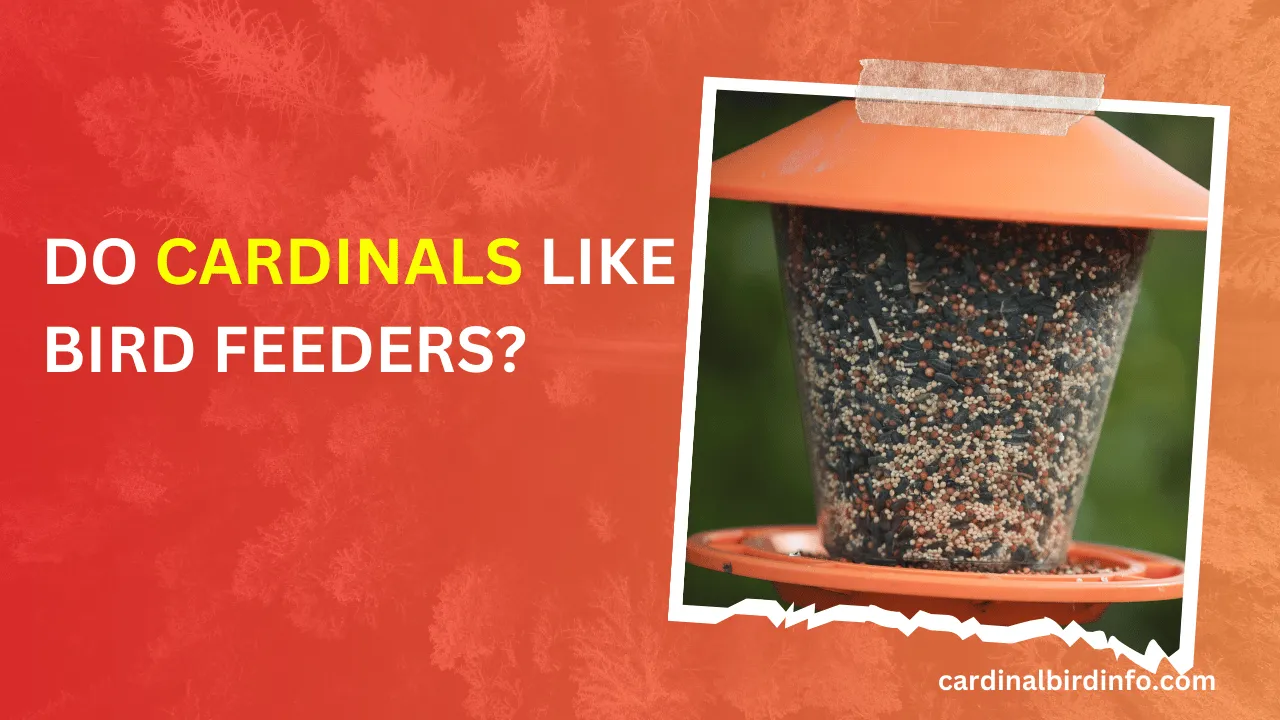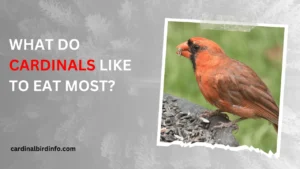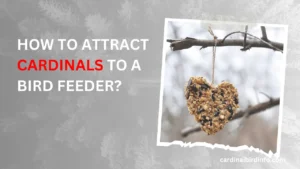Did you know that the northern cardinal is not only one of the most recognizable birds in North America, but also one of the most cherished by birdwatchers? With their vivid red plumage and melodic song, these striking birds stand out in any backyard, adding a burst of color and life to the natural world.
But here’s a question you might not have considered: Do cardinals actually like bird feeders?
Understanding the answer to this can transform your backyard into a welcoming haven for cardinals and other wildlife. This article will explore the fascinating connection between cardinals and bird feeders, shedding light on their preferences, feeding behaviors, and what you can do to create the perfect environment to attract these stunning birds to your home.
Whether you’re a seasoned bird enthusiast or just curious about the cardinal’s habits, this guide is packed with insights to help you succeed in drawing these beauties closer.
So, if you’ve ever wondered what makes a cardinal choose one yard over another or if bird feeders really make a difference, keep reading.
You’ll soon discover how easy it is to turn your outdoor space into a cardinal-friendly sanctuary, one that brings joy, beauty, and ecological benefits right to your doorstep.
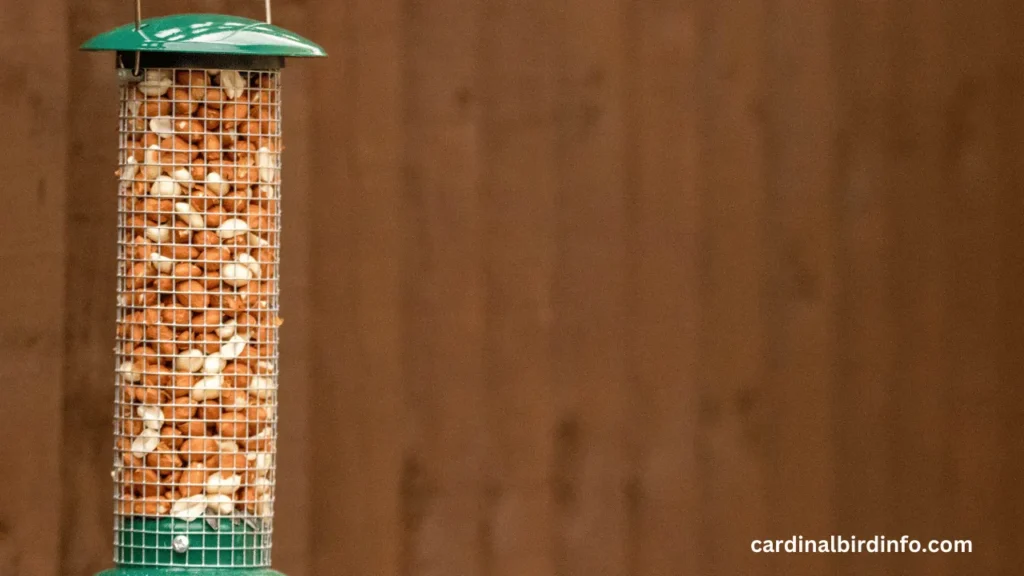
Contents
- 1 Cardinal Biology and Behavior
- 2 Attracting Cardinals with Feeders
- 3 Benefits of Attracting Cardinals
- 4 Challenges and Considerations
- 5 Conclusion
- 6 FAQs
- 6.1 1. Do cardinals prefer specific types of bird feeders?
- 6.2 2. What seeds are best for attracting cardinals?
- 6.3 3. Do cardinals need water in addition to feeders?
- 6.4 4. Are cardinals territorial birds?
- 6.5 5. How do I prevent squirrels from raiding my bird feeders?
- 6.6 6. How often should I clean my bird feeders?
Cardinal Biology and Behavior
Cardinals are adaptable birds, thriving in a variety of environments from woodlands to suburban gardens. Their natural habitats typically include dense shrubs and wooded edges, but they are increasingly spotted in residential areas where they find plenty of food and shelter.
In the wild, cardinals enjoy a diverse diet consisting of seeds, fruits, and insects. They have a special liking for sunflower seeds and safflower seeds, which is why having a well-stocked feeder can draw them in.
During mating season, their territorial behavior is heightened, with males fiercely protecting their space from other birds.
Cardinals are not just solitary feeders. They often travel in pairs, and once you’ve won over one cardinal, chances are you’ll soon spot its mate nearby, both sharing the bounty you provide.
Attracting Cardinals with Feeders
To attract cardinals, it’s important to choose the right type of feeder. Platform feeders and hopper feeders are ideal, as they provide a stable surface for these medium-sized birds to perch and feed comfortably. While tube feeders are popular among smaller birds, cardinals often find them less appealing.
In terms of seed preferences, cardinals have a distinct love for black oil sunflower seeds, which are rich in nutrients and easy to crack open. Other good options include safflower seeds and cracked corn, all of which can be easily found at most garden centers.
To make your backyard even more inviting, consider adding a water source such as a birdbath, as cardinals appreciate having access to fresh water, especially in the summer heat.
By providing the right feeder setup and a reliable food source, you can encourage cardinals to become regular visitors to your yard.
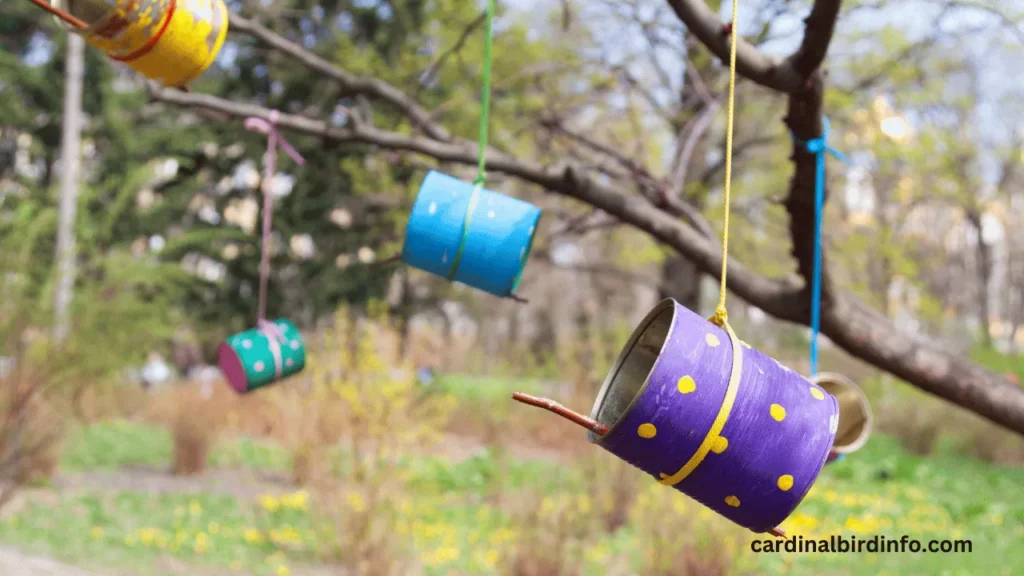
Benefits of Attracting Cardinals
Attracting cardinals to your backyard has several ecological advantages. These birds help with seed dispersal, playing a small but important role in maintaining the balance of local ecosystems. Additionally, cardinals assist with pest control by feeding on insects like beetles and grasshoppers.
Beyond their ecological role, cardinals bring aesthetic beauty to any space. Their striking colors, combined with their melodic calls, can brighten even the dullest winter days. Watching them offers a wonderful educational opportunity, teaching children and adults alike about local bird species and the importance of conservation.
Challenges and Considerations
Attracting cardinals isn’t without its challenges. One of the biggest issues is competition from squirrels and other animals that may raid bird feeders. To mitigate this, use squirrel-proof feeders or place feeders in areas that are harder for squirrels to access.
There is also the issue of disease prevention. It’s crucial to regularly clean and disinfect feeders to prevent the spread of illness among birds. Feeders should be washed at least once a week, and old or moldy seeds should be discarded to maintain a healthy feeding environment.
Finally, it’s important to consider the ethical implications of attracting wild birds. While feeding cardinals can be enjoyable, it’s essential to feed responsibly, ensuring that food is offered in a way that benefits the birds and does not make them overly reliant on human intervention.
Conclusion
In summary, bird feeders can be a powerful tool for attracting northern cardinals, turning your backyard into a vibrant, bird-filled space. By providing the right food, water, and shelter, you can support these birds in their natural behaviors while enjoying the beauty and joy they bring. Remember to clean your feeders regularly and be mindful of potential challenges like pests and diseases.
So, if you’re looking to make your yard a cardinal-friendly haven, start by choosing the right feeder, offering their favorite seeds, and adding a water source. Soon, you’ll find that your efforts pay off with frequent cardinal visitors, bringing delight and ecological benefits to your outdoor space. Embrace the wonders of nature and create your own bird sanctuary today.
FAQs
1. Do cardinals prefer specific types of bird feeders?
Cardinals favor platform and hopper feeders that allow them to perch and feed easily.
2. What seeds are best for attracting cardinals?
The best seeds include black oil sunflower seeds, safflower seeds, and cracked corn.
3. Do cardinals need water in addition to feeders?
Yes, providing a fresh water source like a birdbath is essential, especially in hot weather.
4. Are cardinals territorial birds?
Yes, during mating season, male cardinals can become highly territorial, defending their area from other birds.
5. How do I prevent squirrels from raiding my bird feeders?
You can use squirrel-proof feeders or position your feeders strategically to make them harder for squirrels to reach.
6. How often should I clean my bird feeders?
Feeders should be cleaned weekly to prevent the spread of diseases and to maintain a healthy environment for birds.

